There was some soul-searching in the Hong Kong academy community upon the release of the 2024 QS World University Rankings, which saw six of the city’s seven institutions on the list slipping backward. Of the two judged to be among the world’s top 50 – compared to three last year – the University of Hong Kong dropped from 21st to 26th, and the Chinese University of Hong Kong fell nine spots to 47th. The Hong Kong University of Science and Technology (HKUST) slid from 40th to 60th.
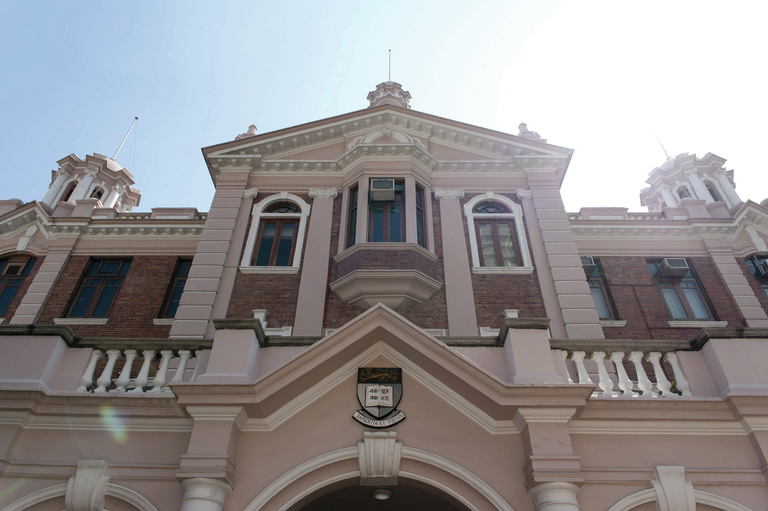
To further highlight the cause for alarm, a spokesperson for global higher education analyst Quacquarelli Symonds (QS) pointed out that Hong Kong had declined by 60 per cent in the rankings of subjects offered. Hong Kong’s comparative inability to reach out and establish partnerships with overseas varsities was cited as one factor behind the listing downgrade. Changes in the assessment weighting were also deemed to be responsible, along with the introduction of three new metrics – sustainability, employment outcomes and international research network.
Academic conundrum
Yet, just a couple of weeks later, a separate survey reported an uptick in Hong Kong tertiary education standards. In the 2023 Times Higher Education (THE) Asia University Rankings, five Hong Kong institutions improved or maintained their standings over the previous year. The plight of HKUST perfectly illustrates this academic conundrum. While the Clear Water Bay-based university dropped 20 places in the QS world rankings, it climbed two spots to seventh position on THE’s list, indicating an improvement in performance – albeit as part of an Asian-oriented survey, not a global one.
A spokesperson for HKUST remained philosophical about the ongoing fluctuations in ranking performance. “Rankings go up and down due to various reasons, and the HKUST will take them as useful references to learn more about our and other universities’ performance and identify areas for improvement,” they said.
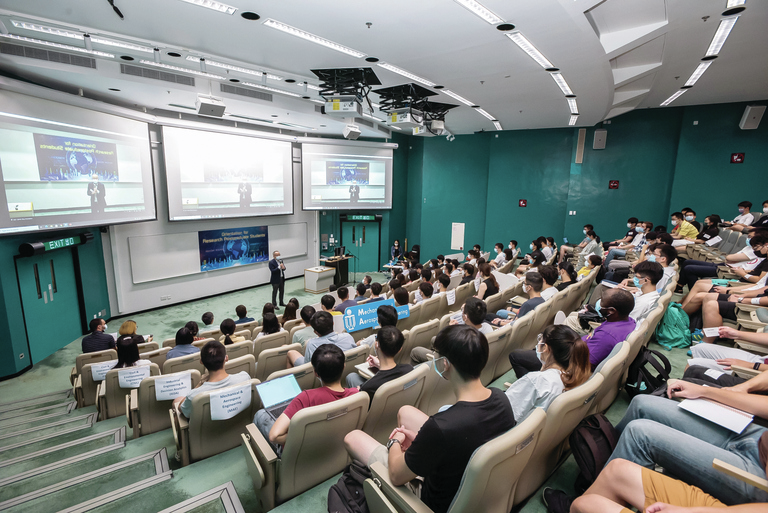
The world ranking is just one of the references for evaluating the quality of an institution. Some consider having a proven track record in teaching and research to be of greater significance. The spokesperson said HKUST had demonstrated its capability in teaching and research through numerous recognitions gained by its students and faculty, as well as its many partnerships and collaborations with top public and private institutions worldwide.
Referring to the Asian ranking, they stated: “As a young university with just 32 years of history, HKUST is pleased that it is constantly ranked among Asia’s top 10 universities in different rankings, and its graduates continue to be ranked by a major ranking agency amongst the most competitive and desirable employees in the global job market. The university will continue to contribute to the academic, research and industrial development of society.”
Also Read: Elevate Your Skills with the Most In-Demand Online Courses
Rating by subject
Several global university surveys are published annually. Those by QS Top Universities, THE and the Academic Ranking of World Universities (ARWU), also known as the Shanghai Ranking, are the most widely read and quoted by institutions. In addition to the major ranking bodies, The Times and The Guardian newspapers in the UK, and U.S. News and Forbes in the US provide more specific league tables.
The big surveys also have sub-rankings that identify universities with high reputations in certain areas above and beyond their overall position. These lists can be surprising. The Hong Kong Polytechnic University, for example, occupies number 85 in the QS rankings but rates 15th worldwide for Optometry. The University of Southampton is rated 78th in the world by QS, but sixth best for Nursing.

A former lecturer at a major Hong Kong university indicates that the worldwide ranking of subjects generates the most concern and interest within the institutions themselves, as it is deemed to reflect the joint efforts of each department.
Ranking breakdown
The way universities are ranked depends on various factors, and the parameters used by the various systems differ slightly. THE, for instance, will consider research volume, income and reputation, and it determines influence in global research by how often papers produced by a university are cited. Among other criteria, QS surveys the academic reputation of the university and considers the employability of its undergraduates. Originally created to determine the global ranking of Chinese universities, the ARWU uses six factors to rank institutions, including the number of alumni and staff winning Nobel Prizes and Fields Medals. The list is published by Shanghai Jiao Tong University and updated annually.
In THE’s methodology, teaching, research and citations contribute 30% each to world ranking. Several assessment methods are used to determine the quality of teaching including self-assessment, student responses and external assessment by lecturers holding doctorates. Research success is assessed by the number of papers published in academic journals and the number of citations – a general indicator of how the university is contributing to the world of knowledge. The impact factor of a journal – its prestige – is also considered.
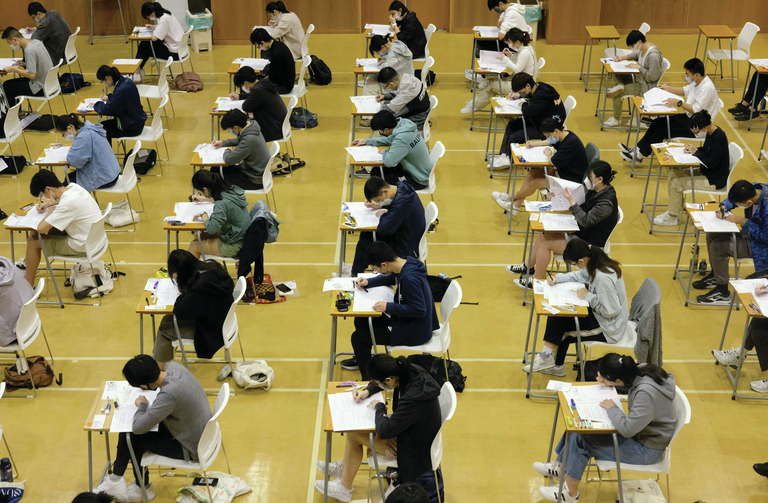
The former Hong Kong University lecturer suggests that in very specialised areas, it can be difficult to reach the required number of citations required by the assessment exercise. She adds: “As both teaching and research are ranked, both aspects are important [to academic staff] for contract renewal and possible promotion.”
Income for research is factored in as well since most research grants are competitive and are won or lost on the reputation of research team members. Earnings from industry – a barometer of a university’s capability to realise new inventions and transfer technology – are also considered.
Student satisfaction
Another important consideration is the ability to attract a large proportion of students and faculty from across the world. Regarding student satisfaction, commentators have expressed fears about grade inflation as universities strive to keep students sweet. The former lecturer is quick to dispel such concerns, saying: “Student satisfaction is important as this is reflected in the rankings. Regarding the danger of grade inflation, while it is possible, most lecturers respect the importance of integrity.”
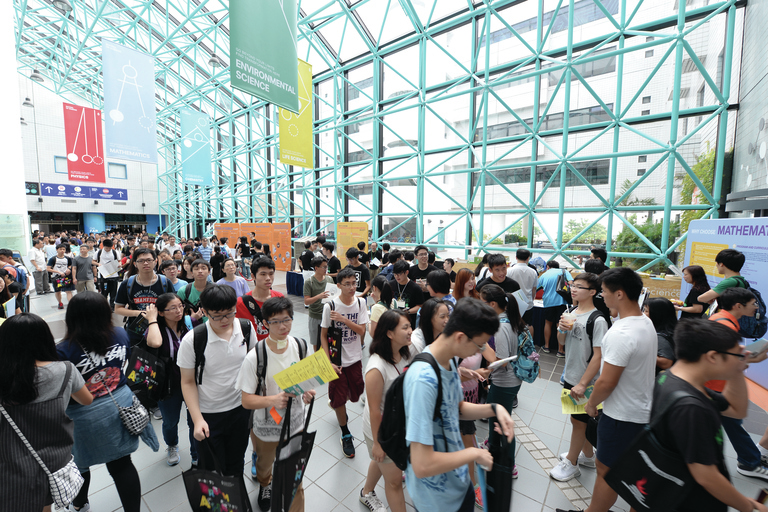
Italian exchange student Riccardo Scavone recently attended the University of Hong Kong (HKU) for one semester. He took four courses, two in Accounting, one in Finance and one in Communication, at Hong Kong’s top-ranked tertiary institution. Faced with a host of destination choices for his time overseas, he eventually plumped for Hong Kong. He says: “I chose HKU instead of other universities in Hong Kong for two reasons: the ranking and the location in the city. After having chosen the city, the ranking was the only way to differentiate among universities.”
He loved his time at the university – both socially and academically. “If I had to give a grade, it would have been a 10 out of 10,” he enthuses.
Grading façade
Scavone feels the importance of rankings is overblown. “I reckon the ranking in the majority of the cases is a façade,” he opines. “There is not that much difference between a 20th-ranked uni and a fifth one.”
That said, he stresses that HKU provides students with a premium experience of high-quality teaching and facilities, and plenty of extracurricular courses to create bonds between students. He also believes its reputation will play an important role when looking for a job.
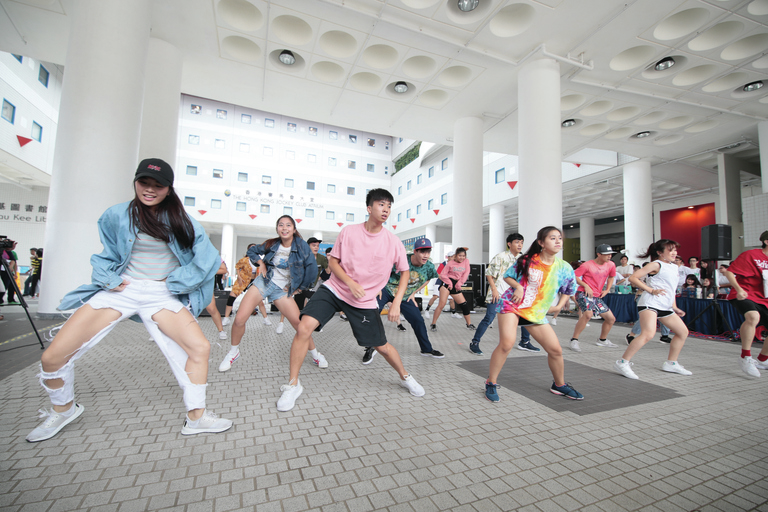
Interestingly, Scavone adds that ranking may be a pivotal criterion for some of his peers – for reasons other than academic. “It is not a matter of obtaining a better education or job placement, but social recognition,” he explains. “Everybody wants to feel approved and respected and, in these terms, attending a top-ranked uni helps in the process.”
An Indian student revealed she took Journalism at HKU because the department was staffed by experienced journalists. On the reverse side of the coin, Hong Kong-raised Valerie decided to study archaeology at Cardiff University in the UK because there are limited heritage and archaeological sites in Hong Kong. She felt the UK would offer a broader perspective.
Despite this year’s QS world-ranking setback, Hong Kong is rightly proud of its many excellent universities and academic institutions. Proposals to attract more non-local students to the city’s government-funded universities will add diversity and talent, helping Hong Kong in its drive to become a regional centre for education.
Photos: Hong Kong University of Science &Technology (HKUST)



